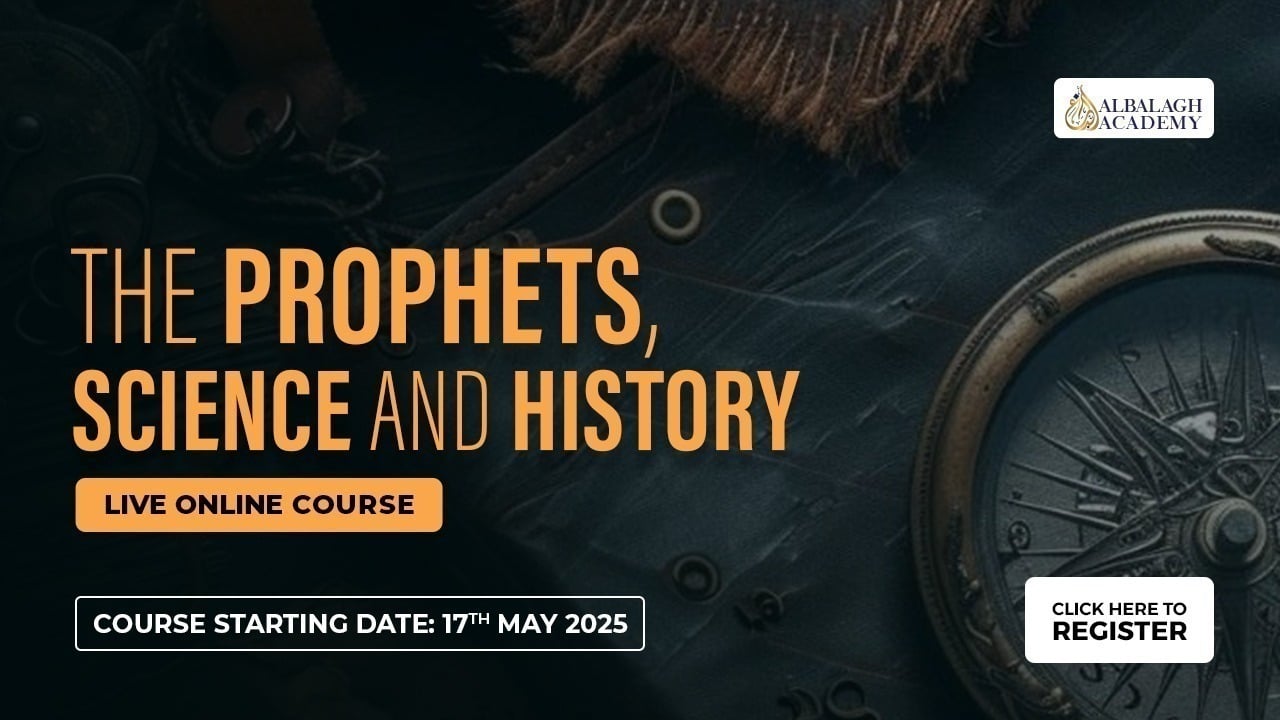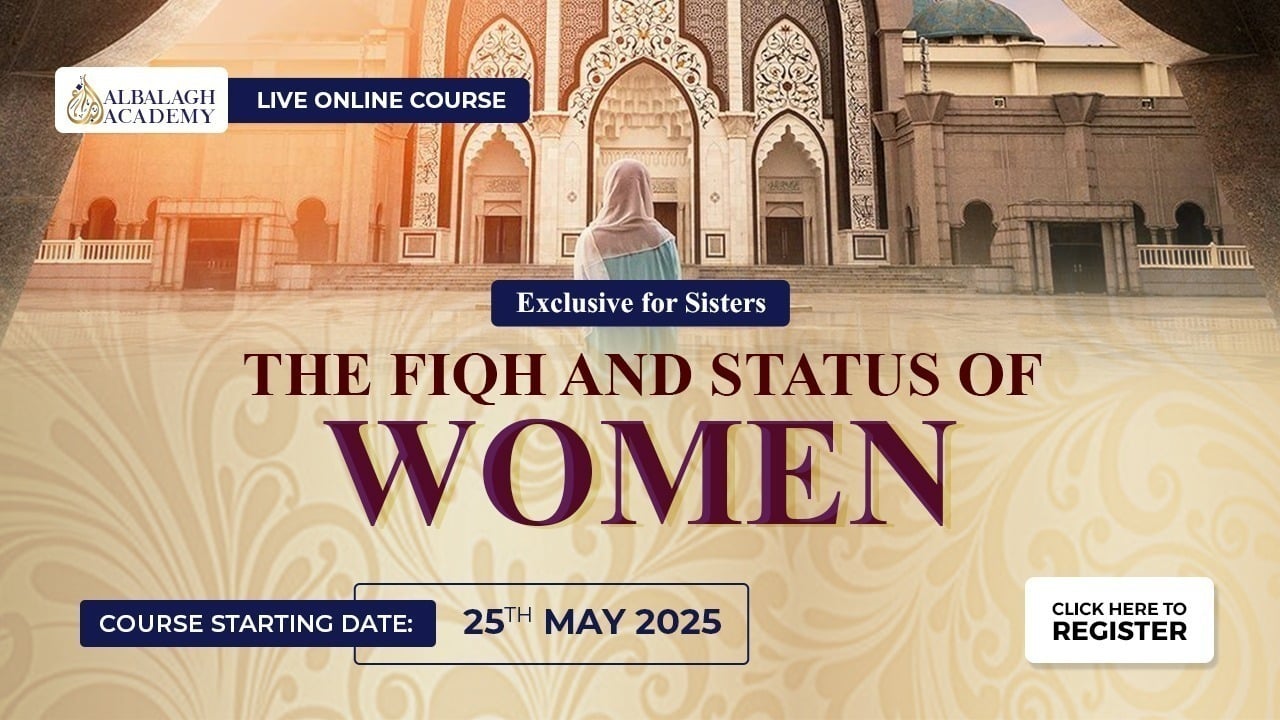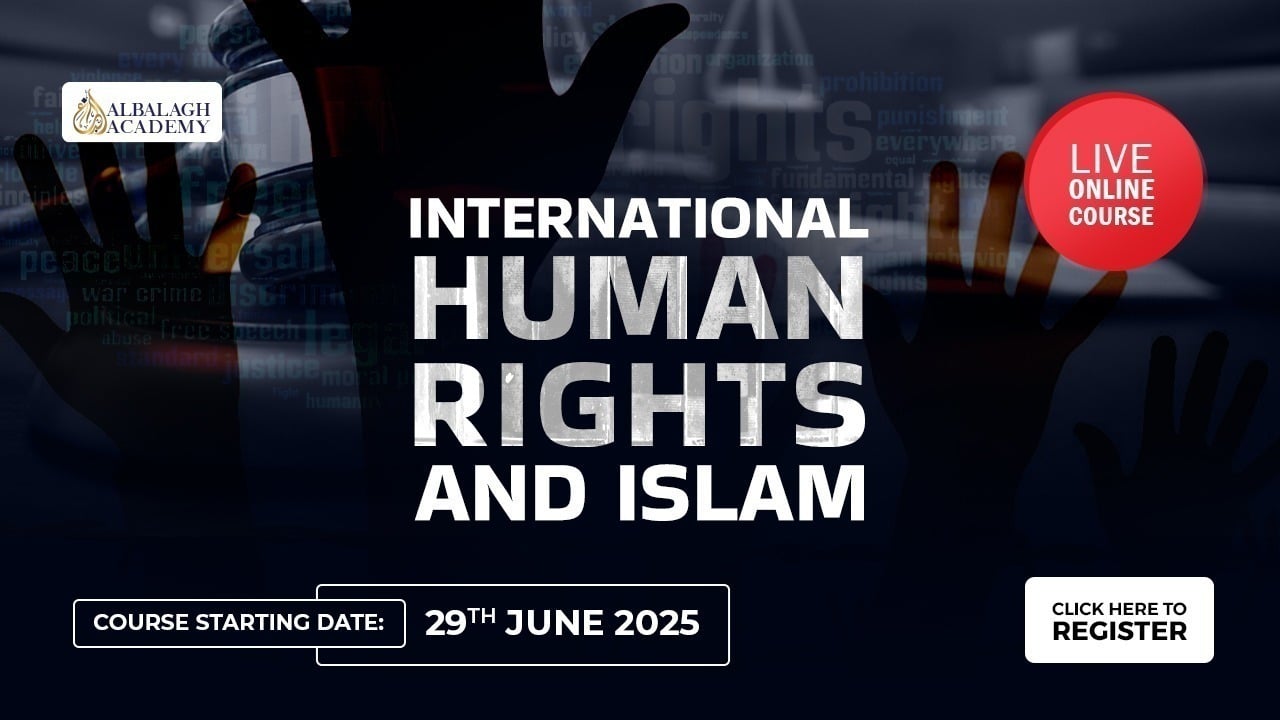Confronting Islamophobia: A Critical Analysis
Deconstruct the mechanisms of racism and discrimination targeting Muslims
About The Course
This course “Confronting Islamophobia: A Critical Analysis” explores the discourses, politics and real-life case scenarios of Islamophobia that led to the racialisation of Muslims throughout modernity. Topics will include colonialism and imperialism, the role of music, film, philosophy and the internet in the construction of otherness, the Olympics of suffering, and the responses different groups have had against their racialisation. This class will be of interest to students exploring religion, anthropology, philosophy, Latin American and Caribbean studies, European studies, Middle Eastern studies, history and comparative literature.
Anti-Muslim bigotry and racism have risen to epidemic proportions in the United States and Europe. Al Balagh Academy recognises the importance of equipping a broad array of religion scholars with the pedagogical knowledge, tools, and strategies to teach about, and against, anti-Muslim prejudice.
Course Team
Ustadah Tabassum Hussain
(Da’ee, Lecturer, Researcher, Debater, Youth Mentor, Toronto, Canada)
Ustadh Abdullah Al-Andalusi
(International Muslim Thinker, Speaker and Debater, London, UK)
Dr. Muzammil Hussain
(PhD, University of Washington, Guest Lecturer at Albalagh)
10 Live Sessions

1 Hr per Lecture
Duration : 10 Weeks
Sundays, 2 PM - 3 PM (London, UK)
Video Recordings Available

Mobile App
Live Q&A
Digital Certificate
Enrol Now
Starts on 3rd November 2024
Course Fee: Free
Registration Deadline:
2nd November 2024
Al Balagh Scholarship
AlBalagh Scholarship is available for learners who cannot afford the fee.
Sessions
Course Overview
This course “Confronting Islamophobia: A Critical Analysis” delves into the historical and contemporary forces that have led to the racialization of Muslims throughout modernity, examining how colonialism, media, and politics contribute to Islamophobia. Students will explore the differences between teaching about Islam and Islamophobia, understand how Islamophobia functions as a form of racism, and develop strategies to address and teach against anti-Muslim prejudice. The course Confronting Islamophobia: A Critical Analysis is particularly relevant for those studying religion, anthropology, philosophy, and various regional studies. Through a blend of theoretical insights and practical approaches, participants will be equipped to critically analyze and combat Islamophobia in both academic and public settings.
The Islamophobia: History, Politics, and Responses course provides an in-depth exploration of the complex dynamics that have contributed to the racialization of Muslims in modern history. Through the examination of colonialism, imperialism, and the role of media, music, film, and the internet, this course unpacks how otherness is constructed and perpetuated. The course also addresses the “Olympics of suffering” and the varied responses to racialization by different groups.
A key component of this course Confronting Islamophobia: A Critical Analysis is the distinction between teaching about Islam and teaching about Islamophobia, with a focus on the latter as a form of cultural racism. Students will gain a deeper understanding of the mechanisms through which Islamophobia operates, why it matters in the broader context of racism, and how to create effective strategies for addressing it.
The curriculum is designed to equip students with the pedagogical tools needed to integrate an understanding of Islamophobia into their teaching, whether by creating new courses or enhancing existing ones. The course covers a wide array of topics, including the contrast between Islamophobia and antisemitism, the mental health impact of Islamophobia, the securitization of Muslim identities, and the critical role of media in perpetuating Islamophobic narratives.
In addition to theoretical knowledge, the course offers practical insights into legal, policy, and social models for tackling Islamophobia. Students will learn about legislative approaches, community empowerment strategies, and successful case studies from the UK, France, and the US. By the end of the course, students will be equipped to critically analyze myths about Muslims, understand the profound effects of Islamophobia, and develop campaigns or educational materials to combat anti-Muslim prejudice in various contexts.


Course Aims and Objectives
The course will seek to teach students:
- Explore the differences between teaching about Islam and teaching about Islamophobia
- Deepen their knowledge of how Islamophobia functions as a form of racism and why this matters for how to create effective strategies for addressing Islamophobia.
- Develop appropriate pedagogical strategies tailored to their specific teaching contexts.
- Consider ways to develop courses on Islamophobia, to frame/reframe courses on Islam by creating awareness of Islamophobia’s impact on the study of Islam, and to enhance existing course modules with greater attention to Islamophobia.
- Cultivate awareness of the pedagogical challenges and opportunities for combating Islamophobia as an engaged scholar inside and outside of the classroom.
Learning Outcomes
On completion of this course, the students will be able to :
- Analyse myths and misconceptions about Muslims
- Understand the meaning of Islamophobia and its effects.
- Create an anti-Islamophobia campaign to display in school.

Frequently Asked Questions
Are Al Balagh courses recognised or accredited?
How is this online course structured?
When will I have access to the online course material?
Will I get notification for live sessions?
Is it mandatory to attend live sessions?
I missed a live session. Can I get the video recordings?
Can I download the video recordings on my device (Desktop/Laptop/Mobile/Tab)?
What is the process for reaching out to the instructor?
( Please note, they often have demanding schedules and may not always be able to address individual queries. We encourage you to attend live sessions and utilize the Q&A period for questions. For queries post-lecture, feel free to contact our administrators, and we will do our best to assist. Responses from instructors will depend on their availability. Thank you for your understanding.)
When will the final exam be held?
I have doubts but I cannot attend the live session. Any other way to ask my questions?
How do I interact with my classmates?
Joining the group will allow you to connect with fellow course students for discussions and updates.
How long will I have access to the free online course(s)?
I am facing trouble signing into the “ILM” Online Student portal. What should I do?
How can I apply for the Al Balagh Scholarship?
What is the course grading policy?
- Weekly Assessment Exams (60% of total points): Throughout the course, you will encounter approximately 5-6 online objective assessments aimed at testing your understanding and honing your skills. These weekly checkpoints are pivotal in tracking your progress and ensuring you're on the right path.
- Course Final Exam (40% of total points): The culmination of your learning journey is marked by the course final exam. This decisive assessment evaluates your grasp of the entire course content.
- Achieving a score of 40% or above is essential to pass the course. This balanced approach between regular assessments and a comprehensive final exam ensures that you not only retain information but also apply your knowledge effectively.
When can I expect to receive my Certificate of Achievement?
Following successful course completion, you will be eligible to receive your digital certificate of achievement. To be eligible, you must meet the following criteria:
Completion of All Course Modules: Full engagement with all designated course materials, including readings, assignments, and assessments, is mandatory.
Attainment of the Minimum Passing Threshold: A minimum grade of 40% is required to qualify for the certificate of achievement.
Who do I contact if I still have doubts related to my courses ?
📞 Admissions Team( Payment, Scholarships, Enrollment, or information about New Courses):
🚀 Short-Term Course Support (Assessment, Course-related, or IT-Technical issues):
Is there a mobile app for accessing my courses ?
- For Android users: Download from the Google Play Store
- For iOS users: Download from the App Store
Dive into a world of convenient and accessible learning today!






